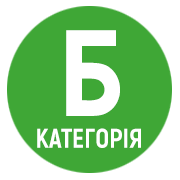NEOGENIC TRENDS IN THE UNOFFICIAL NAMING OF UKRAINIAN POLITICIANS IN THE EARLY TWENTY-FIRST CENTURY: WORD-FORMATION ASPECT
DOI:
https://doi.org/10.32689/maup.philol.2024.4.4Keywords:
innovation, occasionalism, anthroponym, nickname, word-formation model, deviation, non-usual modelAbstract
In the article, the author aims to study the word-formation specifics of innovations in the unofficial naming of Ukrainian politicians in the early twenty-first century. The scientific novelty of the proposed study lies in the consideration of current trends in the replenishment of the vocabulary of the unofficial anthroponymicon on the basis of Ukrainian factual material, which contributes to deepening the general idea of modern neogenic trends in language and speech; allows expanding the existing theoretical framework with conclusions about dynamic processes in the system of innovative phenomena in general and at the word-formation level in particular; helps to highlight transformations in the system of naming. The specificity of the chosen object of study led to the use of the methods of observation and comparison; the method of component analysis with a comparative element; the descriptive method; the method of quantitative calculations; the method of morphemic and word-formation analysis; as well as the methods of analysis and synthesis. On the material of nicknames of representatives of modern politics, the author traces ‘neogenicity’ in the most extreme linguistic manifestations, which overcomes the conservatism of such established systems as the anthroponymicon. The structural and semantic specificity of nicknames is analyzed and the basic directions of realization of their emotional and evaluative potential are outlined. It is established that word creation in the field of unofficial nicknames today, on the one hand, fits into the general trends of neogenic processes of the modern Ukrainian language, and on the other hand, acquires specific features associated with modifications of classical anthroponymic formulas and word-formation patterns. The active involvement of non-usual word formation tools in the creation of nicknames has been observed. The author sees prospects for further research in the analysis of the derivational specificity of innovative formations not only in the anthroponymy system, but also in the phenomena related to it at the level of motivational relations.
References
Вдовчин І. Я., Савойська С. В. Вплив постмодернізму на розбудову моделі мовної політики. Вісник Донецького національного університету імені Василя Стуса, Сер.: Політичні науки. 2019. С. 79–85. doi 10.31558/2617‐0248.2019.4.13
Дюкар К. В. Відонімні неосубстантиви в українському медійному онлайн-просторі воєнного періоду: структурно-семантичний аспект. Науковий вісник Міжнародного гуманітарного університету. Сер.: Філологія, 2023. № 59. Т 1. С. 105–108. https://doi.org/10.32841/2409-1154.2023.59.1.24
Колоїз Ж. В. До питання про диференціацію основних понять неології. Вісник Запорізького державного університету: Філологічні науки, № 3, 2002. С. 78–83.
Наливайко М. Я. Актуальні питання неофіційної антропонімії. International Academy journal. Web of Scholar. 2(20). Vol 5. February 2018. Р. 90–93.
Павлюк В. А. Становлення неофіційного антропонімікону Вінниччини : дис. ... канд. філол. наук: 10.02.01. 2016. 244 c.
Пахомова С. М. Еволюція антропонімних формул у слов’янських мовах: монографія. Вид. 2-ге, доповн. і переробл. Ужгород : Видавництво Олександри Гаркуші, 2012. 344 с.
Постмодернізм / Н. Б. Отрешко, Г. Ю. Носова. Енциклопедія Сучасної України. Редкол. : І. М. Дзюба, А. І. Жуковський, М. Г. Железняк [та ін.] ; НАН України, НТШ. Київ : Інститут енциклопедичних досліджень НАН України, 2024. URL: https://esu.com.ua/article-882808
Редько Ю. К. Сучасні українські прізвища. Київ : Наукова думка, 1966. 214 с.
Українська мова: Енциклопедія. Вид. 2-е. випр., доп. / Ред. кол.: В. М. Русанівський, О. О. Тараненко, М. П. Зяблюк, Є. А. Карпіловська та ін. Київ: Вид-во «Українська енциклопедія» ім. М. П. Бажана, 2004. 824 с.
Форманова С. В. Інвективна семантика прізвиськ українських політиків. Записки з ономастики: збірник наукових праць. Вип. 17. 2014. С. 248–255.
Худаш М. Л. З історії української антропонімії. Київ : Наукова думка, 1977. 236 с.
Шульська Н. М. Прізвисько як об’єкт наукового опису (до дефініцій терміна). Прикарпатський національний університет імені В. Стефаника. Вип. XXIX–XXXI. 2011. С. 292–296.
Alford R. Naming And Identity: A Cross-Cultural Study of Personal Naming Practices. Cambridge : Cambridge University Press, 2016. 190 p.
Crystal D. The Cambridge Encyclopedia of the English Language. Cambridge : Cambridge University Press, 2004. 282 p.
Holland J. The Many Faces of Nicknames. Names. 2015. Vol. 38. № 4. р. 255‒269.
Styshov O. Neologisms of the Military Sphere in the Modern Ukrainian Language. Logos (Lithuania). 2022. № 113. P. 116–128. doi.org/10.24101/logos.2022.79.






